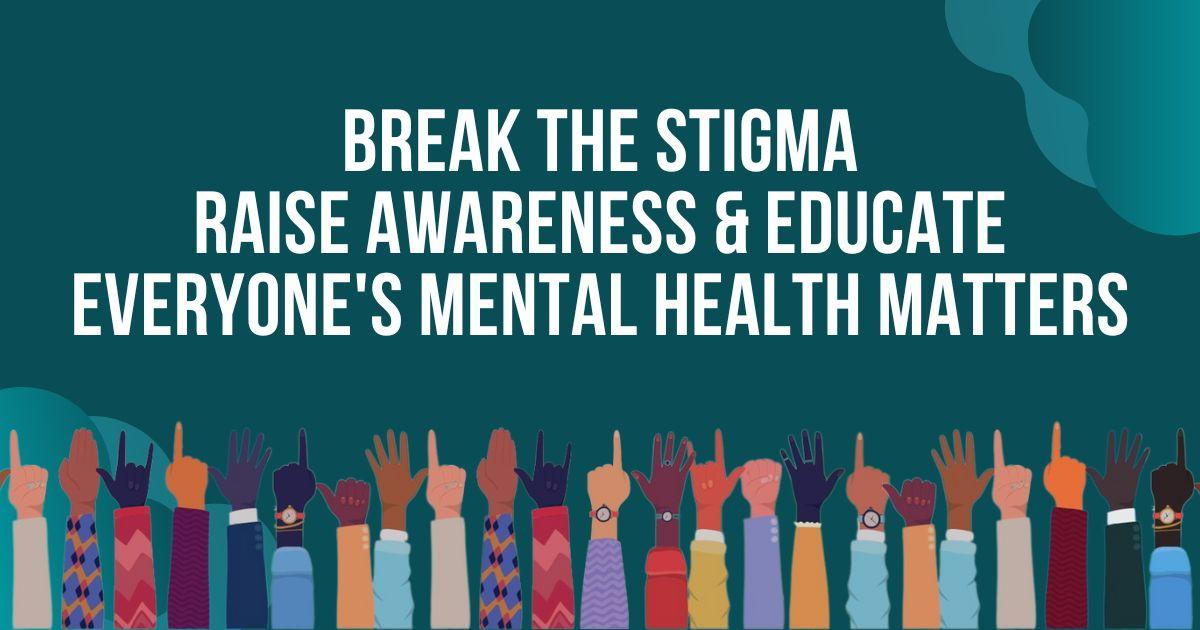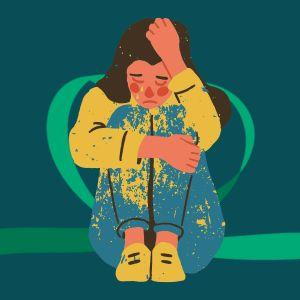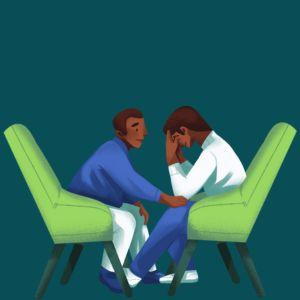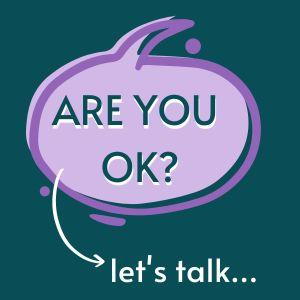
Dear Readers,
Welcome to July! As part of our commitment to advancing mental health awareness and wellness, I'm thrilled to share this month's theme which focuses on BIPOC Mental Health Awareness. We'll dive deeper into the effects of historical trauma on mental health and explore healing strategies. So let's start our journey to better understand, heal and empower!
1. Understanding Historical Trauma
The collective psychological and emotional scars left behind by significant historical events are referred to as historical trauma. For instance, the effects of slavery, colonization, or systematic racism have left lasting imprints on the BIPOC community which continued to challenge and change their well-being.
Here are some examples and brief summaries of historical events that may still have an impact on the BIPOC community today.
Slavery: Many African Americans still struggle with the effect of centuries of slavery including forced labor, family separation, and physical abuse.

Jim Crow Era and Segregation: African Americans were deeply affected during the era of racial segregation in the United States known as the Jim Crow Era. They were heavily exposed to violent racism and discrimination.
Colonization: Indigenous communities were negatively impacted by the colonization of their lands and eradication of their cultures and were deeply traumatized by forced assimilation and introduction to diseases.
Systematic Racism: The BIPOC community often faces disparities in education, employment, and healthcare.
Immigration and Displacement: Immigrants, including those who are under forced migrations, refugee status, or migrated due to difficult conditions, often experience trauma due to language barriers, discrimination, and disconnection with family and culture.
IQ and Standardized Testing: In the past, standard IQ tests were culturally biased which automatically labeled the BIPOC community to be less intelligent, so Robert Williams developed the Black Intelligence Test of Cultural Homogeneity (B.I.T.C.H) Test in the 1970s to challenge that theory and the validity of all IQ and standardized tests.
Syphilis Tuskegee Experiment: An unethical experiment conducted by doctors from US Public Health Services (PHS) where African American men were recruited to participate in the treatment of Syphilis. Due to this, the African American community developed a mistrust of public health officials and vaccines.
2. Impact on Mental Health
 The impact of historical trauma still lingers among the BIPOC community today. According to a systematic review published in Wiley Online Library, trauma and grief symptoms were found in the descendants of historically oppressed groups of Indigenous Americans.
The impact of historical trauma still lingers among the BIPOC community today. According to a systematic review published in Wiley Online Library, trauma and grief symptoms were found in the descendants of historically oppressed groups of Indigenous Americans.
According to an article published by Mental Health America, historical adversity, which includes slavery, sharecropping, and race-based exclusion from health, educational, social, and economic resources, translates into socioeconomic disparities experienced by Black and African American people today. Socioeconomic status, in turn, is linked to mental health: people who are impoverished, homeless, incarcerated, or have substance use problems are at higher risk for poor mental health.
Here are some examples of the impact of historical trauma on mental health:
- Depression and Anxiety: Due to the lingering impacts of oppression and discrimination, many within the BIPOC community experience fear, stress, and hopelessness.
Post-Traumatic Stress Disorder (PTSD): Events in the past caused BIPOC individuals to experience persistent psychological distress, making them more prone to PTSD symptoms.
Complex Trauma: Complex trauma refers to exposure to multiple traumatic events in an extended period of time. Due to the continuous discrimination and violence inflicted on the BIPOC communities, many had issues with emotional regulation and sense of self and interpersonal relations.
Substance Abuse and Addiction: Many individuals rely on alcohol and substances to cope and escape their traumas.
Intergenerational Transmission: The transmission of trauma over generations, whereby the experiences of earlier generations continue to influence the mental health and coping methods of succeeding generations.
These impacts on mental health were further challenged due to the disparities in mental health services among the BIPOC community. According to a 2017 fact sheet published by American Psychiatric Association, people from racial/ethnic minority groups are less likely to receive mental health care. In 2015, among adults with any mental illness, 48% of whites received mental health services compared with 31% of blacks and Hispanics, and 22% Asians.
3. Strategies for Healing and Resilience
Even while historical trauma can have a substantial impact on mental health, it is important to remember that healing and resilience are possible. The following techniques can aid in healing:
Cultivating Cultural Identity: Discovering and accepting cultural history can help develop resilience and a sense of belonging. This can entail participating in community events or cultural activities or connecting with cultural traditions.
Seeking Support: It's crucial to provide BIPOC individuals with a secure and culturally appropriate venue where they can express their experiences and feelings without judgment. Therapy or the establishment of support groups and neighborhood organizations can help with this.
Promote Intergenerational Healing: Acknowledging intergenerational trauma or the passing of trauma-related symptoms or behaviors to the next generations is crucial in the healing process. We can stop the perpetuation of historical trauma if we promote healing across generations. Among the techniques to encourage intergenerational healing are:
Encouragement of Storytelling: Younger generations can have a better grasp of their ancestry and the tenacity of their predecessors by encouraging elder generations to share their stories and insights.
 Whether written or spoken, this can also encourage individuals to reframe their experiences and narratives and find strength in their resilience.
Whether written or spoken, this can also encourage individuals to reframe their experiences and narratives and find strength in their resilience.Advocacy and Social Change: Promoting social justice and addressing structural challenges are crucial components of the healing process. We can actively promote positive transformation and social well-being by opposing oppressive regimes.
Creating Safe Spaces: Establishing safe places that encourage communication, empathy, and understanding can help people connect in therapeutic ways and advance healing.
And above all else, it’s important that we advocate education and raise awareness. The information we share in this community goes a long long way and can impact lives more than we could imagine. Healing is a long journey, it is a process and every step, and every effort counts.
Wishing you a month filled with growth and healing.
Warm regards,
Dr. Katrina Pittman, LPC